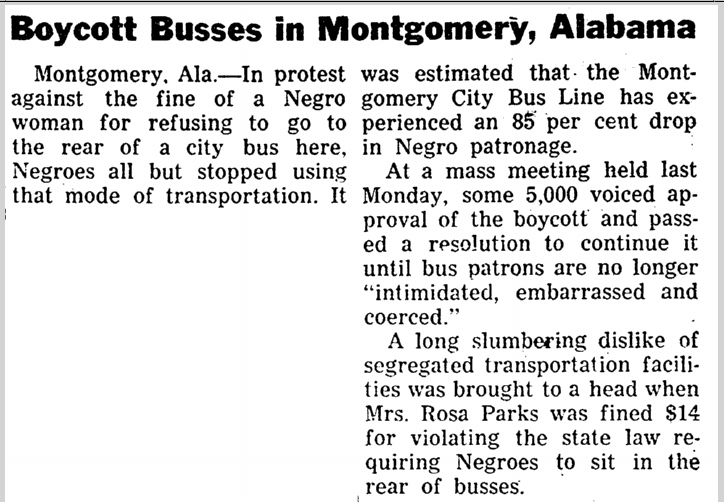When Rosa Parks refused to give up her seat to a white person on an Alabama bus 58 years ago, her act of defiance against racist laws sparked the Montgomery Bus Boycott and accelerated the Civil Rights Movement, forever changing America. In a ceremony Wednesday in Washington, D.C., which was attended by dozens of her relatives, the deceased Civil Rights pioneer was honored by the unveiling of a life-size statue in the nation’s Capitol building.

The recent statue unveiling marks an important moment in black history as Rosa Parks is the first African American woman to be honored in the Capitol’s Statuary Hall with a life-sized statue. Many congressional leaders praised her courage and example during Wednesday’s dedication ceremony, including President Obama.
During his remarks, President Obama said: “In a single moment, with the simplest of gestures, she helped change America and change the world.”
Rosa Parks & the Montgomery Bus Boycott
When Rosa Parks refused to give up her bus seat on Dec. 1, 1955, it wasn’t because she was too old or tired. Although her resistance came at the end of another long working day as a seamstress in the Montgomery Fair department store, Parks was only 42 and a strong, healthy woman.
No, what prompted her refusal that day was that Parks had simply had enough of the city’s segregation laws that gave whites more rights than blacks.

News of her arrest for refusing to give up her seat to a white person quickly spread throughout the African American community in Montgomery, and a protest was organized: blacks refused to ride the city’s buses until the segregation laws were changed. A young minister, Martin Luther King, Jr., led the protest and soon rose to prominence in the nation’s Civil Rights Movement.
The Montgomery Bus Boycott lasted 381 days before the segregation laws were finally changed and African Americans once again rode Montgomery’s buses.
